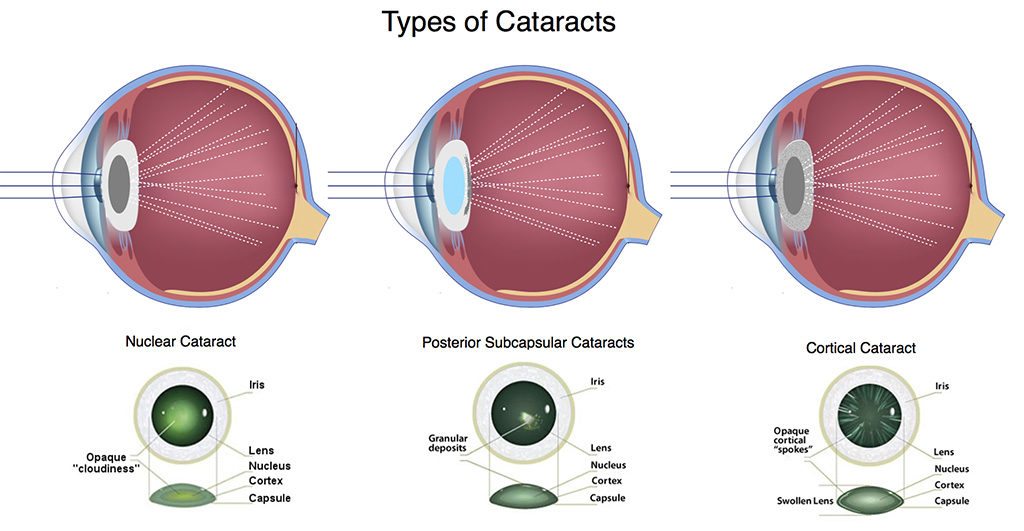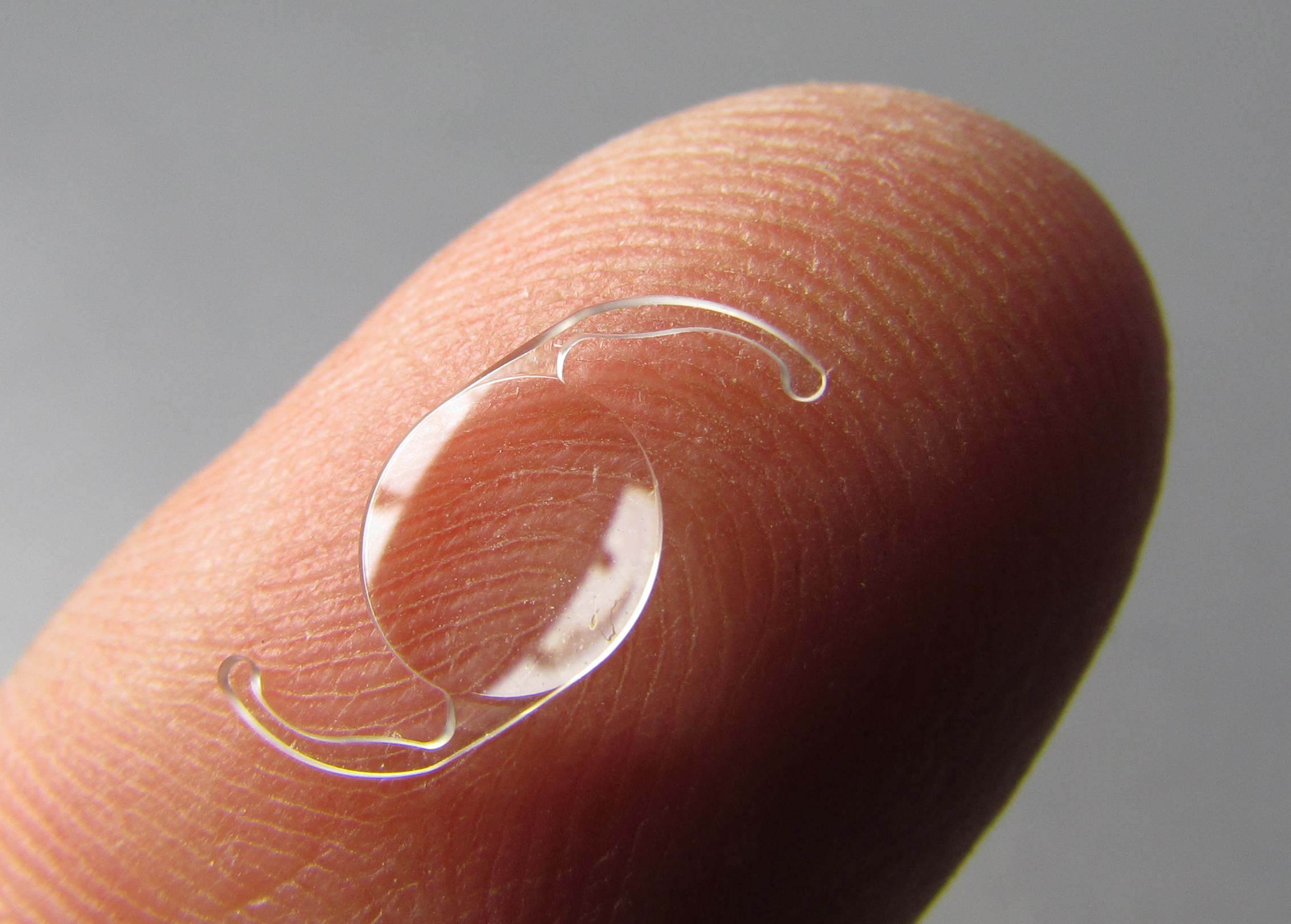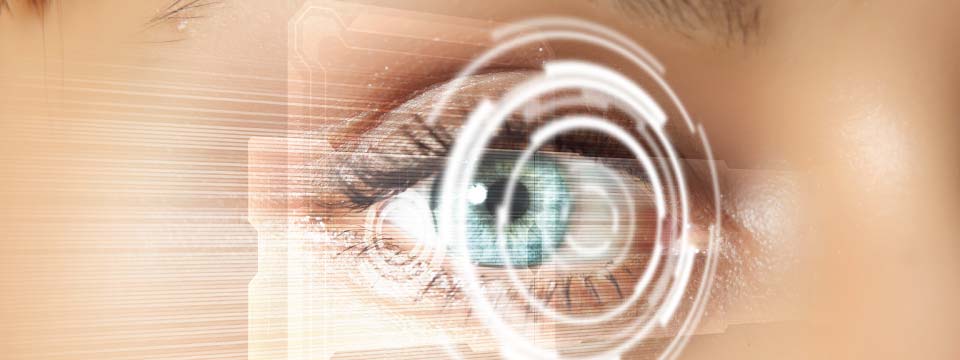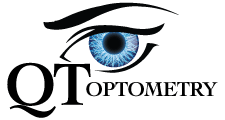
Who Gets Cataracts?
Eventually, everyone will have some form of cataracts because cataracts are formed due to normal wear and tear as you progress through life. The size, location, and severity of the cataract will determine when to have it removed. Once cataract are removed, glasses/contact lenses may still be required, depending on the intra-ocular lenses (IOLs), that were chosen during the pre-operative consultation.
When To Treat?
Not all visually significant cataracts require surgical interventions. It is entirely up to YOU to have the final decision whether cataract extraction is necessary. However, please realize that as the cataract progresses, your vision will continue to degrade, to the point that it may compromise your abilities to drive a vehicle!
Thus, the basis of treatment truly do depends on the extent and severity of your visual disability, your symptoms, and your visual needs. Some common symptoms of incipient cataracts include, but not limited to:
- reduced contrast sensitivity.
- blur at distance.
- color changes.
- sensitivity to light and/or glares, especially at night time.
Can Cataracts be Prevented?
There’s no real way to prevent cataracts, as they are simply a part of aging and are caused by a natural buildup of protein in your eye’s lens. However, sun protection (sunglasses) does help to ward the sun’s damaging UV rays.

Basics of Cataract Surgery
There are many choices for intra-ocular lenses (IOLs), to choose for your cataract surgery, depending on your specific needs. There are IOLs that can help to correct for myopia (nearsightedness), hyperopia (farsightedness), and astigmatism.
Another option that you may have is to choose a variety of advanced presbyopia correcting IOLs, to help improve your reading vision, without sacrificing your distance vision. Presbyopia-correcting IOLs include accommodating IOLs and multifocal IOLs; both types are designed to provide a greater range of vision after cataract surgery than conventional IOLs.
Lastly, advances in femtosecond lasers, (lasers that are used to create the corneal flap in LASIK), have been approved by the FDA for cataract surgery in the United States. This added benefit means less surgical blades and other hand held tools are utilized, thus, results are much better, in term of comfort, complications, and overall vision.
Does Cataract Surgery Hurt?
There will be some discomfort after surgery. During the surgical procedure, you’ll be given a mild sedative, such as Valium to help you relax. Then, local anesthetic are used to numb the eye before surgery to make the procedure more comfortable for you.

Cataract Surgery Recovery
Uncomplicated cataract surgery usually lasts about 15-30 minutes. However, pre-preparation (dilation of pupil) and education (post-operative instructions) does take awhile, thus, realistically, expect to be at the surgical center for at least one to two hours, if not longer. More importantly, you must have a designated driver, after cataract surgery. Important: please do not attempt to drive until you have visited Dr. Q @ QT Optometry the day after your surgery, to confirm that you are safe to drive.
During your recovery period, you will be using prescribed medicated eye drops several times each day, for a few weeks after the cataract surgery. Furthermore, you will also be wearing your eye shield while you’re sleeping/napping for about a week after surgery. Sunglasses are also a must for protection when outside!
During the healing phase, there may be some eye redness, blurred vision, and some discomfort following the procedure. Having said that, it is essential that you avoid the following activities during this phase: strenuous activities/heavy lifting. Keep eyes close while showering/bathing. Avoid swimming pool, hot tubs, or water sports for at least two weeks. Avoid activities that may expose your eye to dust, grime, or other infection-causing contaminants.
If cataract surgeries are warranted in both eyes, your surgeon usually will wait one to three weeks between procedures, to ensure that your first eye has healed sufficiently and that you have good vision in that eye before the second surgery is performed.
Can Eye Drops Cure Cataract?
No…and Yes! Researchers are working on a unique drop that can reverse or even prevent some cataracts. BUT it’s still in the trial phases and will be a LONG time before it’s approved by the FDA. So close…yet so far.


